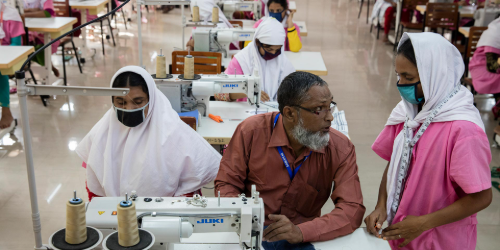G20 Summit: South Africa Leads the Charge for Digital-First Sustainable Travel

The future of global tourism is being firmly anchored on the foundational principles of inclusion, sustainability, and solidarity, as emphasized during the G20 Tourism Ministers Meeting under South Africa's presidency. These are not merely aspirational concepts but crucial frameworks designed to navigate and address the complex, interconnected challenges impacting the tourism sector worldwide. South Africa's leadership has meticulously crafted an agenda centered around four strategic priorities, aiming to significantly reorient tourism’s trajectory, particularly benefiting Africa and other developing regions.
One of the foremost priorities is empowering travel and tourism startups and Micro, Small, and Medium Enterprises (MSMEs) through digital innovation. Recognizing that MSMEs constitute the very backbone of tourism economies, the presidency advocates for the strategic integration of emerging technologies, including people-centered artificial intelligence, to enhance competitiveness and foster greater inclusion. However, this transformative digital push necessitates robust financing mechanisms and targeted programs to effectively bridge the prevailing digital divide, thereby ensuring that the benefits of technological advancement are accessible to all and no entity is marginalized. This emphasis on digital transformation was particularly highlighted by Pololikashvili, who stressed the critical role it plays in enabling MSMEs to innovate and expand, cautioning that without adequate financing and inclusive policies, these technological advantages would remain out of reach for many.
Another critical pillar of the agenda focuses on tourism financing and investment to promote equality and sustainable development. Despite tourism's undeniable significance as a vital source of employment, foreign exchange, and tax revenue for numerous developing countries, including Least Developed Countries (LDCs) and Small Island Developing States (SIDS), it remains severely underfunded. A striking statistic reveals that Official Development Assistance (ODA) allocated to tourism constitutes less than 0.11% of the total ODA, a glaring disparity that the presidency is committed to rectifying. The goal is to champion innovative financing mechanisms and stimulate increased investment flows into the sector to unlock its full potential for economic growth and poverty reduction.
Enhancing air connectivity for seamless travel constitutes the third strategic priority. Improved air links are unequivocally essential for unlocking the vast tourism potential, especially across the African continent, where growth is frequently hampered by limited routes and prohibitively high costs. The G20 agenda expressly calls for the expansion of air routes, the streamlining of border processes, and dedicated support for cleaner aviation technologies. These measures are designed to collectively make travel more accessible, more affordable, and inherently more sustainable, fostering greater movement and economic exchange.
Finally, building resilience for inclusive, sustainable tourism development is paramount. The global tourism sector must cultivate an inherent capacity to withstand and rapidly recover from a myriad of crises, including devastating pandemics, the escalating impacts of climate change, and unpredictable geopolitical shocks. By strengthening this resilience, tourism can consistently continue to generate essential jobs and deliver substantial economic benefits, even when confronted with significant disruptions. This overarching focus aligns seamlessly with the broader G20 theme of “Solidarity, Equality, Sustainability,” which advocates for unified global efforts and mutual support among nations to collectively address shared challenges.
The profound importance of tourism for developing countries resonated as a central theme throughout the discussions. For many of these nations, tourism is not merely an economic activity but a cornerstone, providing major sources of employment, crucial foreign exchange, and vital tax revenues. Yet, despite this critical role, it continues to be conspicuously overlooked within broader development assistance and investment strategies. The stark underfunding of tourism through ODA was repeatedly underscored as a significant barrier preventing the sector from realizing its complete potential for sustainable development and poverty alleviation.
Turning specifically to Africa, Pololikashvili drew attention to the continent’s distinct demographic advantage: approximately 70% of sub-Saharan Africa’s population is under the age of 30. This youthful demographic represents a dynamic and burgeoning workforce, alongside a rapidly expanding consumer base, poised to significantly drive tourism growth, provided it receives the necessary investments and supportive policy frameworks. South Africa's G20 Presidency is strategically positioned as a powerful platform to prominently showcase Africa’s emerging leadership and to act as a catalyst for tourism investment, thereby stimulating job creation and fostering widespread inclusion across the entire continent.
On a global scale, the G20 economies exert a dominant influence over international tourism. These nations collectively account for an approximate 70% of all international tourist arrivals and contribute a staggering 83% of the global tourism GDP. In the year 2023 alone, tourism directly contributed 3.1% to the G20’s overall GDP, with tourism exports making up 23% of all service exports in 2024. These compelling figures unequivocally underscore the sector’s immense economic weight and highlight the imperative for coordinated policies among G20 member states to champion sustainable and inclusive tourism growth worldwide.
In summation, the G20 Tourism Ministers Meeting, under the astute stewardship of South Africa’s Presidency, has successfully established a visionary and forward-looking agenda. This agenda decisively prioritizes digital innovation, enhanced financial investment, improved global connectivity, and robust resilience building. These concerted efforts are strategically aimed at ensuring that tourism steadfastly remains a potent engine for economic development, with a particular focus on Africa and other developing regions, while simultaneously advancing the broader global objectives of solidarity, equality, and sustainability.
You may also like...
Super Eagles Fury! Coach Eric Chelle Slammed Over Shocking $130K Salary Demand!
)
Super Eagles head coach Eric Chelle's demands for a $130,000 monthly salary and extensive benefits have ignited a major ...
Premier League Immortal! James Milner Shatters Appearance Record, Klopp Hails Legend!

Football icon James Milner has surpassed Gareth Barry's Premier League appearance record, making his 654th outing at age...
Starfleet Shockwave: Fans Missed Key Detail in 'Deep Space Nine' Icon's 'Starfleet Academy' Return!

Starfleet Academy's latest episode features the long-awaited return of Jake Sisko, honoring his legendary father, Captai...
Rhaenyra's Destiny: 'House of the Dragon' Hints at Shocking Game of Thrones Finale Twist!

The 'House of the Dragon' Season 3 teaser hints at a dark path for Rhaenyra, suggesting she may descend into madness. He...
Amidah Lateef Unveils Shocking Truth About Nigerian University Hostel Crisis!

Many university students are forced to live off-campus due to limited hostel spaces, facing daily commutes, financial bu...
African Development Soars: Eswatini Hails Ethiopia's Ambitious Mega Projects

The Kingdom of Eswatini has lauded Ethiopia's significant strides in large-scale development projects, particularly high...
West African Tensions Mount: Ghana Drags Togo to Arbitration Over Maritime Borders

Ghana has initiated international arbitration under UNCLOS to settle its long-standing maritime boundary dispute with To...
Indian AI Arena Ignites: Sarvam Unleashes Indus AI Chat App in Fierce Market Battle

Sarvam, an Indian AI startup, has launched its Indus chat app, powered by its 105-billion-parameter large language model...



